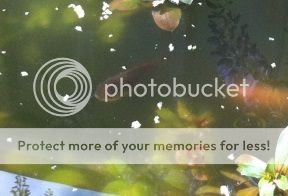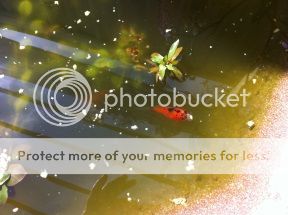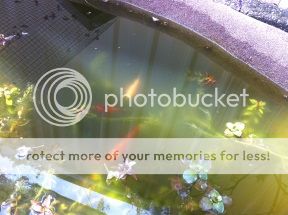- Joined
- Sep 12, 2013
- Messages
- 12
- Reaction score
- 19
- Location
- Adelaide, South Australia
- Hardiness Zone
- 8a
- Country

Hi - I'm brand new to this forum, but not brand new to keeping pond fish. I've had fish for over eight years now. Initially we had four, now we have fourteen - the original four have passed away and the fourteen now are their offspring. They are friendly little things and love to eat from my hand.
At our last house the pond got quite murky from green floating algae and a layer of algae (?) on the sides of the pond, but we didn't do anything about it and the fish were healthy and (obviously) bred profusely. Other than the original four - only a few died (they twisted into a u shape, which was heartbreaking). We have very hard water in Adelaide, South Australia, where I live.
At our new house the algae is back and the pond is getting murky - but no more so than at our previous house. I've read so many times that ponds need to be relatively clear and not have a lot of algae. I've read about different products to clear ponds, but my fear is these will harm my fish.
So - do I need to clear my pond? And, what products or methods are best to use that will not harm my fish?
Here's a photo of my pond as it is at the moment. It is quite an overcast day today - but you can still see the murk!
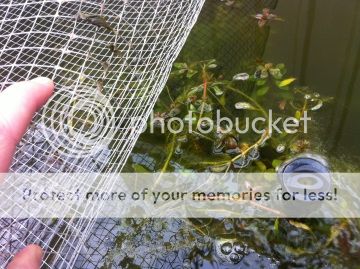
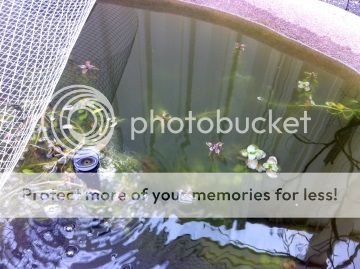
At our last house the pond got quite murky from green floating algae and a layer of algae (?) on the sides of the pond, but we didn't do anything about it and the fish were healthy and (obviously) bred profusely. Other than the original four - only a few died (they twisted into a u shape, which was heartbreaking). We have very hard water in Adelaide, South Australia, where I live.
At our new house the algae is back and the pond is getting murky - but no more so than at our previous house. I've read so many times that ponds need to be relatively clear and not have a lot of algae. I've read about different products to clear ponds, but my fear is these will harm my fish.
So - do I need to clear my pond? And, what products or methods are best to use that will not harm my fish?
Here's a photo of my pond as it is at the moment. It is quite an overcast day today - but you can still see the murk!





